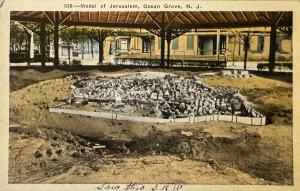 TORONTO — Students must find a voice in the online community, said Shimon Fogel last week during a conference call about Israel’s raid on a Turkish flotilla.
TORONTO — Students must find a voice in the online community, said Shimon Fogel last week during a conference call about Israel’s raid on a Turkish flotilla.
About 400 to 500 people joined in a pro-Israel rally organized by York University students last Friday. The rally, called Stand Up For Israel, was meant to counter an anti-Israel protest held at the Israeli consulate on the same day.
Fogel, the chief executive of the Canada-Israel Committee, spoke to more than 50 Canadian students during the call, which was organized by the Canadian Federation of Jewish Students (CFJS).
“It’s important for individuals within the pro-Israel community to connect with local communities,” he said, adding that blogs and social media are a crucial tool in countering misinformation and lies about the flotilla, which was bringing aid to the Gaza Strip.
“Social media has become a critically important dimension… the one [voice] that you have can bring an echo.”
Fogel replaced Ofir Gendelman, Israel’s spokesperson to the Arab media, who was supposed to speak, but had to attend an emergency meeting about another flotilla heading toward Israel.
Rebecca Cherniak, the incoming vice-president internal of CFJS and a student at McMaster University, stressed the importance of supporting Israel through social network sites and the Internet.
“The battle that we can provide the most support for is the online battle, the blogosphere, Twitter, Facebook… students are mavens with the Internet, and it’s such a useful tool to spread the message.”
With so much media attention on the event, Cherniak said many students were getting conflicting information, something she hoped Fogel could address during the conference call, which allowed students from all over Canada to dial in and participate.
“The main question students [have]… is what happened here,” she said.
While answering this question, Fogel discussed Palestinian aid, explaining that, while Palestinians are entitled to international aid, Israel has a responsibility to inspect the contents of all flotillas.
“Over 15,000 tons of humanitarian aid makes its way into Gaza each week through Israeli land crossings,” he said. “Aid has been loaded, for example, in European ports and has been inspected there, and it turns out not to be what’s stamped on the burlap sack. So you get shiploads of sugar that turns out to be chemicals used in the productions of warheads.”
This is what Israel is targeting, Fogel told students.
“It’s not about rice or wheat or sugar. It’s about cement or rebar [reinforcing steel] or all the other material needed by Hamas to rebuild fortified bunkers to relaunch… missiles,” he said.
When asked why Israeli soldiers didn’t use police weapons that would have done less damage, Fogel said that, in retrospect, commanders may have acted differently “with the benefit of the knowledge they have now,” adding that they initially approached with paintball guns and didn’t expect to use any weapons.
Jay Solomon, the Canadian Council for Israel and Jewish Advocacy (CIJA)’s manager of campus advocacy, said that students have been particularly active in finding information about the flotilla.
Solomon added that the discussion put the flotilla issue in context and provided background information.
“That’s often missing in discussions of this nature,” said Solomon, who worked with CFJS to organize the conference call.
“Students… are the leaders on campus but they’re also the leaders of tomorrow. It’s important that the students understand the facts and how what they’re seeing on the news may or may not be what actually happened.”






